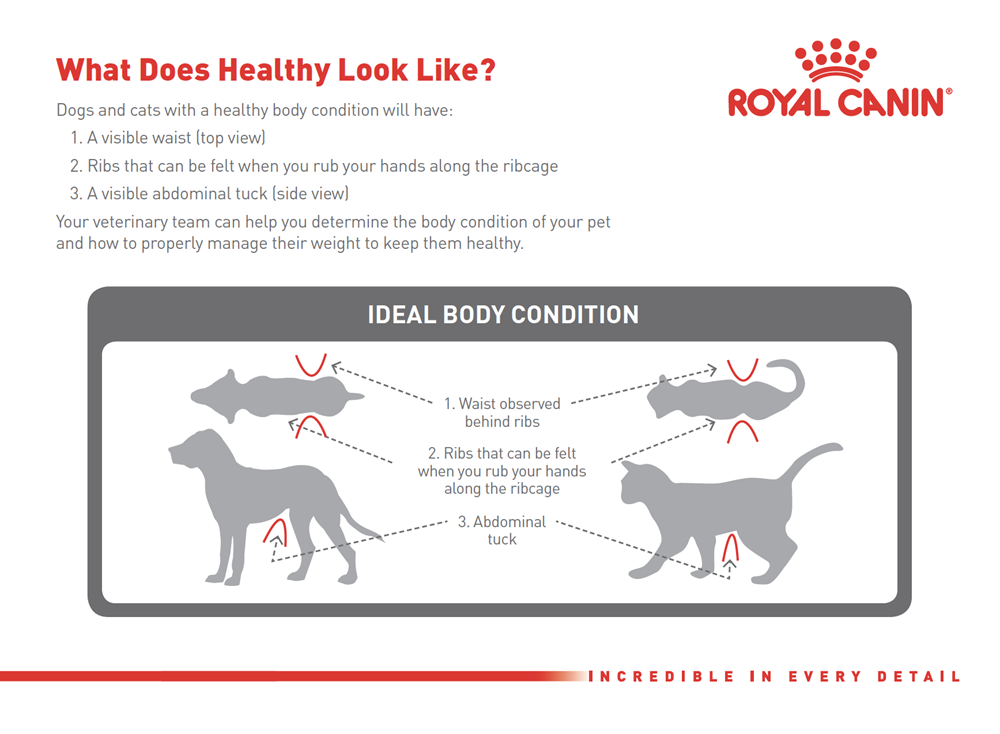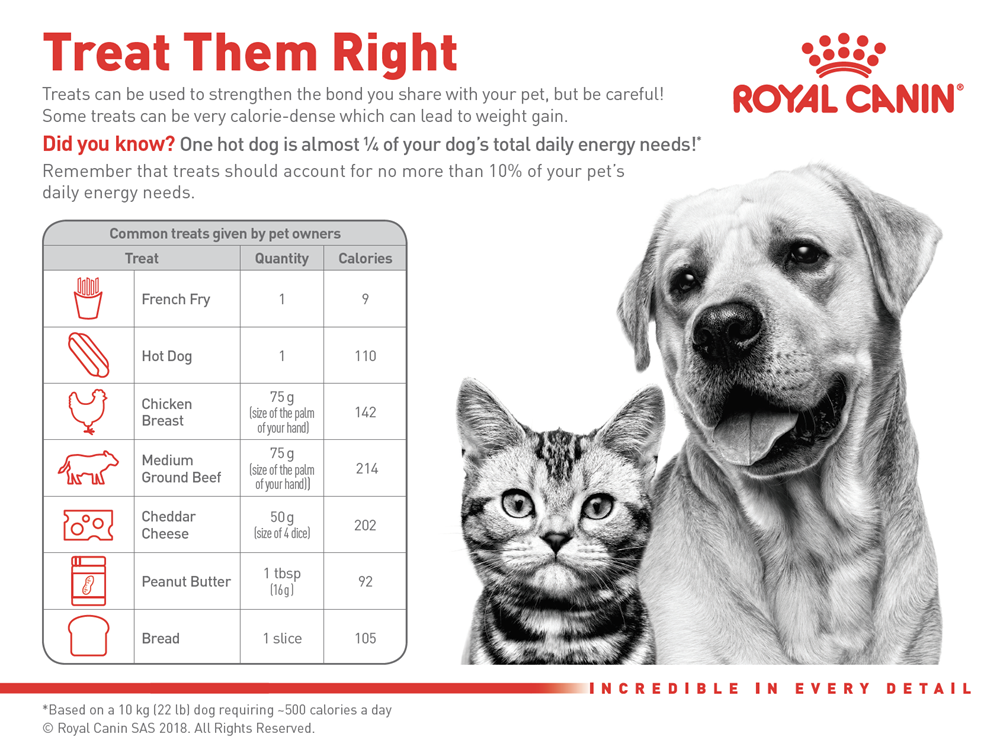Weighing in on Obesity Prevention
Floof. Chonk. Winter-weight. Padding.
There are a lot of different ways we can describe dogs who are on the heavy side. Probably one of the reasons there are so many descriptions is because there are quite a few dogs befitting of these terms. In North America, it is estimated that over half of dogs suffer from obesity!
But what's all the fuss about? It's just a bit of extra weight, right?
Unfortunately, obesity can contribute to many other expensive health conditions, and can even shorten lifespan. We want our dogs to be healthy, and live long and happy lives with us, so obesity should be high on our list of things to watch out for.
Any dog who is currently overweight or obese should be seen by their veterinarian. The veterinary team can help implement a weight-loss plan, as well as screen for any health conditions that may be related. Healthy weight loss is a slow process, and your veterinary team is there to help support.
We've all heard the old saying that an ounce of prevention is worth a pound of cure. This rings especially true for weight management, when taking proactive steps to prevent pet obesity can make a huge impact.
Healthy Portions
Overfeeding can be a huge contributor to a dog's weight gain, not to mention it adds to the feed bill! By determining how much food your dog should be eating every day, and measuring out portions carefully, you can prevent overfeeding and help keep weight gain in check.
But not all food has the same energy density, so two cups of one food may not be equal to two cups of another food, even if it's made by the same manufacturer. It's important to consult the feeding guideline for the specific type of food you are feeding, and consider any extra calories that might be coming in the form of treats or a complimentary canned pairing. Your pet professional can help you determine the best amount to feed.
Healthy Treats
We all love giving our dogs a bit of something extra. Whether those treats are used to help with training, or if they have additional health benefits, such as joint or dental nutrients, treats can be a fun addition to a dog's balanced diet. But we need to consider the extra calories that can come along. Treats, including human foods, chews and supplements, should make up no more than 10% of a dog's total calories for the day. Be sure to check the packaging to see how many calories a particular treat has, and how many is recommended per day. Choosing a lower calorie treat can help increase the number we can provide every day.
Remember also that treats add up! If a package says the suggested feeding amount is 6 treats per day, that is assuming it's the only treats that dog is receiving. If you are also offering other treats or chews, that number will need to be adjusted.
Looking to feed human food, but aren't sure of the calories? Our infographic can help!


Healthy Exercise
Food and treats are only part of the equation towards healthy weight. We also need to ensure our dogs are getting a healthy amount of exercise. Daily walks, sporting events, swimming or even treadmills - there are so many ways we can keep our dogs active.
Consider what sort of activity is best for your dog based on their interests, life stage, breed or health condition. Puppies, who are still growing, and senior dogs, who may have decreased mobility, will likely benefit from shorter, less intense exercise given more frequently. Short-muzzled or brachycephalic dogs, like English Bulldogs or Pugs, may need to exercise during the cooler periods of the day, and avoid exercising midday when it's hottest. If you're unsure of what exercise is best for your dog, ask your veterinarian or breeder for guidance!
When should we start being concerned about our pet's weight? Right away! Weight management and obesity prevention should start right from puppyhood and continue into their senior years. This can keep our pets healthy and happy, and even add years onto their lives!
References
1. Association for Pet Obesity Prevention (2018)
2. Kealy et al (2002). JAVMA 220(9)